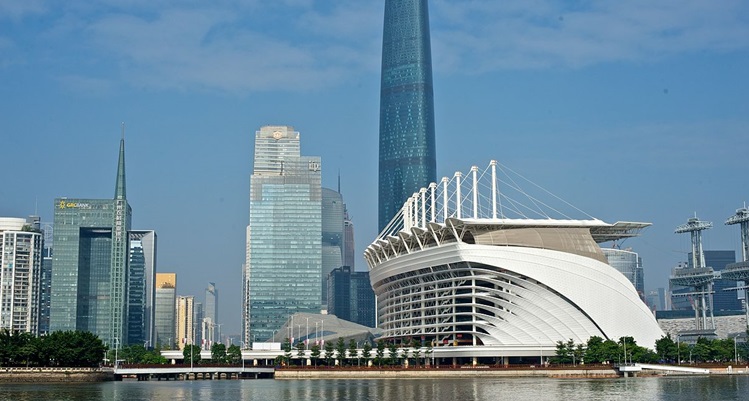As part of a plan to transform the area around the cities of Hong Kong, Macau, and Guangzhou into one giant integrated economic zone, an official Chinese think-tank has reportedly proposed loosening existing border inspections for some internal travelers and providing mainland residents with on-arrival visas.
According to a report from the Southern Metropolis Daily newspaper, the ideas from the China Center for International Economic Exchanges came after March saw Chinese State Council Premier Li Keqiang use a session of the 12th National People’s Congress to recommend the creation of the Guangdong-Hong Kong-Macau Greater Bay Area, which would also include the cities of Shenzhen, Foshan, Dongguan, and Zhuhai.
The Guangdong-Hong Kong-Macau Greater Bay Area, which would moreover consist of the cities of Zhaoqing, Huizhou, Zhongshan, and Jiangmen, is home to in excess of 67.6 million people and recorded a total gross domestic product last year greater than Australia at $1.3 trillion. The think-tank reportedly explained that development in the Guangdong Province region could be further increased if existing restrictions on mainland residents wishing to travel to Macau and Hong Kong were relaxed with local authorities around the Pearl River Delta permitted to issue their own travel visas.
The newspaper reported that the ideas, which were presented to senior Guangdong Province government officials including governor Ma Xingrui earlier this month, additionally include extending the validity for one-off visas to Macau and Hong Kong and doing away with outbound border inspections across the region.
Wang Fuqiang from the China Center for International Economic Exchanges told the newspaper that a draft plan based on the think-tank’s ideas and prepared by Guangdong Province government officials had already been sent to authorities in Hong Kong and Macau for consultation with a finished proposal due to be submitted to the central government in Beijing by September.
The newspaper reported that the Macao Government Tourism Office recently declared that it expects the total number of tourists traveling to the former Portuguese enclave this year to increase by around 5% and that instituting visa and border regulation changes could potentially boost visitation to the city even higher.
As further evidence, last month saw Macau’s Statistics and Census Service report that first-quarter visitation to the city has risen by 5.6% year-on-year to 7.87 million with travelers from mainland China constituting 67.5% of the total at nearly 5.32 million, which was a swell of some 7.6%.



